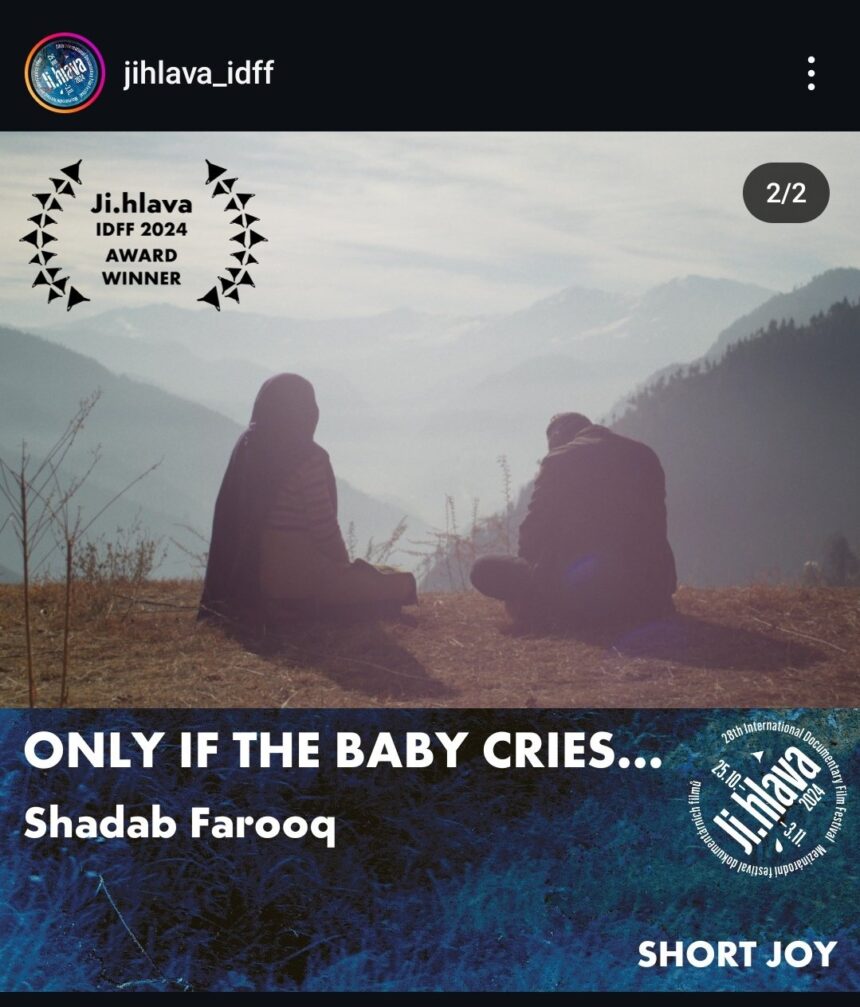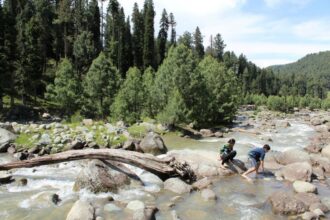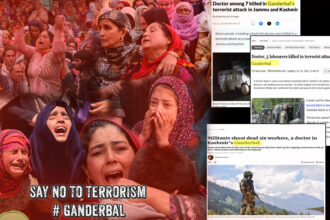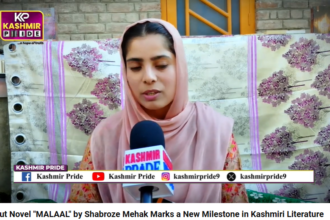In a remarkable achievement for Jammu & Kashmir, the documentary ‘Only If the Baby Cries…’ has garnered international acclaim by winning the Best Short Film Award at the 28th Ji.hlava International Documentary Film Festival. This prestigious recognition is not just a personal victory for the filmmakers but a significant milestone for the region, illuminating the unique stories that emerge from its remote landscapes.
The Story Behind the Film
A Glimpse into Dhadkai
Set in the picturesque yet isolated village of *Dhadkai, located in the *Chenab Valley of Doda district, ‘Only If the Baby Cries…’ explores the challenges faced by a community marked by hearing and speech disabilities. The film provides an intimate look at a world that often goes unnoticed, revealing both the struggles and resilience of its inhabitants.
The documentary centers on a young couple, Misra Khatoon and Mohammad Iqbal, who are anxiously awaiting the arrival of their child. As they navigate their fears and hopes, the film delves into local customs surrounding childbirth. A traditional ritual involves villagers making noise around a newborn to determine whether the child can hear. This cultural practice reflects deep-rooted beliefs about disability and community support, making it a poignant focal point of the narrative.
Cultural Significance
The film does more than just document; it serves as a cultural artifact that captures the essence of Dhadkai’s community life. The villagers’ beliefs about childbirth and disability stem from generations of experience and tradition. By showcasing these practices, ‘Only If the Baby Cries…’ not only tells a personal story but also preserves and promotes local culture on an international platform.
Filmmakers’ Perspectives
Shadab Farooq: A Personal Journey
Director Shadab Farooq, who hails from Doda, expressed his deep connection to this story. “This story is very personal to me,” he said. “I aimed to portray the reality of Dhadkai with honesty and empathy.” For Farooq, this film represents more than just a professional endeavor; it is a heartfelt tribute to his roots and an exploration of his community’s complexities.
Winning at Ji.hlava is a significant milestone for Farooq, who sees it as an opportunity to highlight untold stories from Jammu & Kashmir. “We have many untold stories, and this is just the beginning,” he remarked, emphasizing his commitment to bringing more narratives from his region to light.
Sahib Syed Goni: Capturing Resilience
Cinematographer Sahib Syed Goni also shares a profound connection with Dhadkai’s landscape and its people. He described capturing Dhadkai as “a deeply moving experience.” Goni aimed to reflect both the stunning beauty of the mountains and the inner strength of its residents through his visuals. “The real beauty lies in the resilience of the people,” he added.
Goni’s cinematography plays a crucial role in conveying the emotional depth of the film. The breathtaking visuals not only serve as a backdrop but also enhance the storytelling by immersing viewers in Dhadkai’s environment.
Anzer Ayoob: Authentic Representation
Anzer Ayoob, who served as Location Manager and Researcher for the film, emphasized the importance of authentically portraying Dhadkai’s culture. “Dhadkai’s story is one that the world needs to hear,” he stated proudly. Ayoob believes that bringing local narratives to an international audience is essential for fostering understanding and appreciation of diverse cultures.
The collaborative effort among Farooq, Goni, and Ayoob exemplifies how local filmmakers can create impactful narratives that resonate globally. Their dedication to telling their region’s stories is not just inspiring but also serves as a model for other independent filmmakers from smaller regions.
The Production Journey
Crafting an Emotional Narrative
The production team worked meticulously to create a film that captures both breathtaking visuals and emotional depth. Sound designer Caster Rinoy Gomez played an integral role in enhancing the film’s atmosphere, ensuring that every sound element contributed meaningfully to storytelling.
The team faced numerous challenges during filming, including navigating difficult terrains and weather conditions in Dhadkai. However, their commitment to authenticity drove them forward. The filmmakers sought to immerse themselves in village life, engaging with residents to understand their experiences better.
Support from Public Service Broadcasting Trust (PSBT)
Produced by Rajiv Mehrotra and executive produced by Aparna Sanyal of PSBT, ‘Only If the Baby Cries…’ received crucial support that enabled its realization. PSBT has been instrumental in promoting independent filmmaking in India, particularly for projects that focus on social issues and cultural narratives.
The collaboration with PSBT allowed Farooq and his team to access resources and expertise that significantly enhanced their production quality. This partnership underscores the importance of institutional support for independent filmmakers striving to tell important stories.
International Recognition at Ji.hlava
A Prestigious Platform
The Ji.hlava International Documentary Film Festival is renowned for showcasing groundbreaking documentaries from around the world. This year, 22 films competed in its Short Joy section, with ‘Only If the Baby Cries…’ emerging as an audience favorite—a remarkable achievement for an Indian documentary.
Winning this award not only elevates Doda filmmakers on an international stage but also highlights Jammu & Kashmir’s rich storytelling potential. The recognition serves as validation for their hard work and dedication while opening doors for future projects.
Benefits of Winning
The award includes distribution and promotion on the Dafilms platform, valued at 3,000 EUR. This opportunity will allow ‘Only If the Baby Cries…’ to reach wider audiences globally, further amplifying its message about disability awareness and cultural richness.
MLA Doda Mehraj Malik congratulated the team on their success, stating, “This is a proud moment for Doda, for Jammu & Kashmir, and for India.” His words reflect a growing recognition of local talent and storytelling capabilities within larger national narratives.
Streaming Access and Global Reach
Availability on Dafilms
‘Only If the Baby Cries…’ is available for streaming on Dafilms until November 3rd, providing viewers worldwide with access to this powerful narrative from Dhadkai. The film’s availability on such platforms signifies a shift toward democratizing access to independent cinema, allowing diverse voices to be heard beyond geographical boundaries.
Engaging Global Audiences
As audiences engage with this documentary, they are invited into Dhadkai’s world—a place filled with challenges yet brimming with resilience and hope. The film encourages viewers to reflect on their perceptions of disability while fostering empathy towards marginalized communities.
By sharing this story globally, Farooq, Goni, Ayoob, and their team contribute significantly to raising awareness about issues faced by deaf and mute populations in rural areas like Dhadkai. Their work exemplifies how cinema can serve as a catalyst for social change by highlighting underrepresented voices.
Conclusion: A Beacon of Hope
The international success of ‘Only If the Baby Cries…’ stands as a beacon of hope for independent filmmakers from regions like Jammu & Kashmir. It serves as a reminder that rich narratives exist everywhere—waiting to be told by those who understand them best.
As Shadab Farooq reflects on this journey, he expresses hope for future projects that continue to explore impactful stories from his homeland. “We have so many stories yet to tell,” he notes thoughtfully.
This documentary not only marks a professional milestone for its creators but also represents a collective journey toward recognition and representation for marginalized communities in India. As they celebrate their win at Ji.hlava, Farooq, Goni, Ayoob, and their entire crew look forward to continuing their mission—sharing impactful stories that reflect the soul of Chenab Valley while inspiring future generations of filmmakers from Jammu & Kashmir.
‘Only If the Baby Cries…’ encapsulates not just personal stories but also broader themes of resilience, community support, and cultural identity. As it continues to gain recognition on international platforms, it paves the way for more filmmakers from smaller regions to share their unique narratives—stories that deserve to be heard in every corner of the globe.







